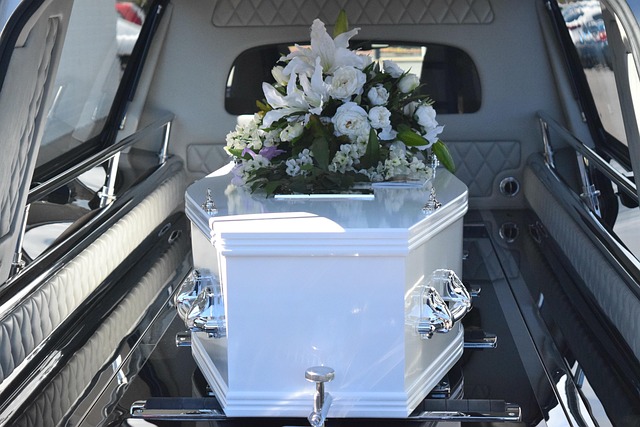Cremation Costs: in 2025 A Guide to the Process
Cremation is increasingly chosen in 2025 for its simplicity and flexibility, yet many families aren’t fully aware of what the process involves. From planning and preparations to final memorial choices, today’s cremation services offer options that can fit different needs and preferences. Learn what to consider to make informed, comfortable decisions for your loved ones

The landscape of funeral services has undergone significant transformation in recent years, with cremation emerging as the preferred choice for many families. This shift reflects changing attitudes towards death, environmental concerns, and practical considerations including cost and convenience. Modern cremation services offer flexibility and personalisation options that traditional burial often cannot match, making it an attractive alternative for contemporary families.
Understanding the Shift Towards Cremation
The movement towards cremation has accelerated dramatically over the past decade. Statistics show that cremation rates in the UK have risen to approximately 80% of all funerals, compared to just 35% in the 1960s. This transformation stems from multiple factors including urbanisation, changing religious attitudes, environmental consciousness, and practical considerations such as cemetery space limitations. Many families appreciate the flexibility cremation offers for memorial services, allowing them to hold celebrations of life at meaningful locations rather than being restricted to traditional burial grounds. Additionally, the portability of cremated remains enables families to keep their loved ones close or scatter ashes in personally significant places.
How Much Does a Simple Cremation Typically Cost?
Direct cremation, the most basic form of cremation service, typically ranges from £1,000 to £2,500 across the UK. This cost-effective option includes collection of the deceased, necessary paperwork, the cremation process itself, and return of ashes to the family. However, prices vary considerably based on geographical location, with London and surrounding areas commanding higher fees than rural regions. A traditional cremation service with ceremony, including funeral director services, hearse, and crematorium fees, generally costs between £3,000 and £5,000. Premium services with additional features such as upgraded coffins, floral arrangements, and extended ceremony time can push costs beyond £6,000.
Factors Influencing Cremation Costs
Several key elements determine the final cost of cremation services. Geographic location plays a crucial role, with urban areas typically charging 20-40% more than rural locations due to higher operational costs and property values. The choice of funeral director significantly impacts pricing, as independent providers often offer more competitive rates than large corporate chains. Coffin selection represents another major cost variable, ranging from simple cardboard options at £200 to elaborate hardwood caskets exceeding £2,000. Additional services such as embalming, viewing arrangements, memorial books, and upgraded urns can add hundreds to thousands of pounds to the base cost.
Timing also affects pricing, with some crematoriums offering reduced rates for off-peak slots during weekdays or early morning appointments. The complexity of paperwork and any required medical examinations can introduce additional fees, particularly in cases requiring coroner involvement or international repatriation of remains.
| Service Type | Provider | Cost Estimation |
|---|---|---|
| Direct Cremation | Pure Cremation | £1,295 - £1,795 |
| Direct Cremation | Simplicity Cremations | £1,195 - £1,695 |
| Traditional Service | Co-op Funeralcare | £3,500 - £4,500 |
| Traditional Service | Dignity Funerals | £3,800 - £5,200 |
| Premium Service | Local Independent | £4,000 - £6,500 |
Prices, rates, or cost estimates mentioned in this article are based on the latest available information but may change over time. Independent research is advised before making financial decisions.
The cremation process itself involves several stages that contribute to overall costs. Initial preparation includes obtaining necessary certificates, arranging collection of the deceased, and completing legal documentation. The actual cremation takes place in specialised facilities with high-temperature furnaces, requiring skilled operators and significant energy consumption. Post-cremation services include processing of remains, preparation of ashes for collection, and administrative tasks such as registering the cremation and providing certificates.
Many families choose to personalise their cremation services through various options that can affect pricing. Memorial services can be held at crematoriums, hotels, community centres, or outdoor locations, each with different associated costs. Some families opt for live-streaming services to include distant relatives, while others choose professional photography or videography to preserve memories of the ceremony.
Environmental considerations increasingly influence cremation choices, with some providers offering eco-friendly options such as bio-cremation or woodland burial grounds for ashes. These alternatives may carry premium pricing but appeal to environmentally conscious families seeking sustainable end-of-life options.
Planning ahead through pre-paid funeral plans can help manage cremation costs and reduce emotional burden on surviving family members. These plans allow individuals to lock in current pricing and specify their preferences, providing peace of mind and financial predictability. However, it’s essential to carefully review plan terms and ensure the provider maintains appropriate financial protections.
Cremation costs in 2025 reflect a complex interplay of factors including location, service level, personalisation options, and provider choice. While basic direct cremation offers an affordable alternative to traditional burial, families should carefully consider their needs and budget when selecting services. Understanding these cost factors enables informed decision-making during emotionally challenging times, ensuring that final arrangements honour loved ones while remaining financially manageable for surviving family members.




